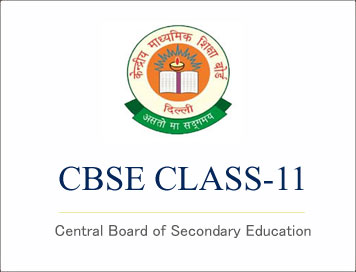CBSE Class-11 Syllabus 2019-20 (Computer Science)
Disclaimer: This website is NOT associated with CBSE, for official website of CBSE visit - www.cbse.gov.in
CBSE Class-11 Syllabus 2019-20 (Computer Science)
Learning Outcomes:
1. Ability to understand basic computational thinking.
2. Ability to understandthe notion of data types, data structures.
3. Ability to appreciate the notion of an algorithm, and understand its structure,including how algorithms handle corner cases.
4. Ability to develop a basic understanding of computer systems - architecture,
OS, mobile and cloud computing.
5. Ability to learn basic SQL programming.
6. Ability to learn all about cyber safety.
Distribution of Marks and Periods:
| Unit.No | Unit Name | Marks | Period | |
| 1. | Computer Systems and Organisation | Theory | Practical | |
| 2. | Computational Thinking andProgramming | 10 | 10 | 2 |
| 3. | Data Management-1 | 35 | 60 | 45 |
| 4. | Society, Law and Ethics - 1 | 15 | 30 | 23 |
| 5. | Practical | 10 | 10 | - |
| Total | 10 | 110 | 70 | |
Unit 1: Computer Systems and Organisation
- Basic computer organisation: description of a computer system and mobile system, CPU, memory, hard disk, I/O, battery.
- Types of software: application, System, utility.
- Memory Units: bit, byte, MB, GB, TB, and PB.
- Boolean logic: OR, AND, NAND, NOR, XOR, NOT, truth tables, De Morgan’s laws
- Information representation: numbers in base 2, 8, 16, binary addition
- Strings: ASCII, UTF8, UTF32, ISCII (Indian script code), Unicode
- Basic concepts of Flowchart
- Concept of Compiler & Interpreter
- Running a program: Notion of an operating system, how an operating system runs a program, idea of loading, operating system as a resource manager.
- Concept of cloud computing, cloud (public/private), introduction to parallel computing.
Click Here To Download Full Syllabus (Computer Science New)
Courtesy: CBSE
